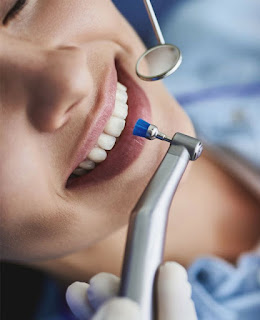The Significance of Dental Cleanings
Taking care of your oral health goes beyond just brushing and flossing; regular dental cleanings play a crucial role in preventing various dental issues. Let's explore the ins and outs of dental cleanings and the best practices for prevention. Regular dental cleanings, also known as dental prophylaxis, are essential . The Family Smiles Dental is suitably located at 1011 N Hwy 77, Ste 105, Waxahachie, Our state of the art facilities are purpose built with the latest technology is the best Dental filling near you. Problem.
For maintaining optimal oral health. Here's why:
Plaque and Tartar Removal: Despite regular brushing and flossing, some areas in your mouth are hard to clean thoroughly. Over time, plaque can harden into tartar, which cannot be removed by brushing alone. Dental professionals have the tools and expertise to remove these stubborn deposits.
Preventing Gum Disease: Plaque buildup can lead to gum inflammation and, eventually, gum disease. Dental cleanings help remove plaque and prevent the progression of gum disease, which, if left untreated, can lead to tooth loss.
Cavity Prevention: Dental cleanings help detect and address cavities in their early stages. Treating cavities early can prevent the need for more extensive and costly procedures later on.
Fresh Breath: Plaque and bacteria buildup contribute to bad breath. Professional cleanings eliminate these sources of odor, leaving your breath fresh and clean.
Frequency of Dental Cleanings:
The recommended frequency of dental cleanings depends on your individual oral health needs. In general, most people benefit from a professional cleaning every six months. However, your dentist may suggest more frequent cleanings if you have specific risk factors or existing dental issues.
Prevention Strategies:
In addition to regular dental cleanings, practicing good oral hygiene at home is crucial for prevention. Here's what you can do:
Brushing: Brush your teeth at least twice a day with fluoride toothpaste. Use a soft-bristle toothbrush and spend at least two minutes brushing all surfaces of your teeth.
Flossing: Flossing once a day helps remove food particles and plaque from between your teeth and along the gumline.
Healthy Diet: Limit sugary and acidic foods, as they contribute to enamel erosion and cavities. Instead, opt for a balanced diet rich in fruits, vegetables, lean proteins, and dairy products.
Hydration: Drinking water helps rinse away food particles and bacteria, promoting oral health. It also helps maintain saliva production, which is crucial for preventing dry mouth.
Avoid Tobacco and Limit Alcohol: Tobacco use increases the risk of gum disease and oral cancer. Excessive alcohol consumption can also harm your oral tissues.
Protective Gear: If you play contact sports, consider wearing a mouthguard to prevent dental injuries.
Regular Dental Check-ups: Routine dental check-ups allow your dentist to monitor your oral health, catch issues early, and provide personalized prevention advice.
Call us at +1-972-351-9110 or visit familysmilestx.com/ to schedule your appointment.




Comments
Post a Comment